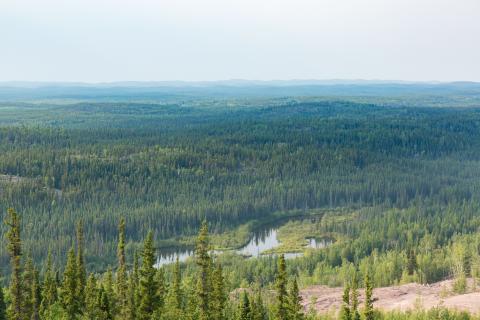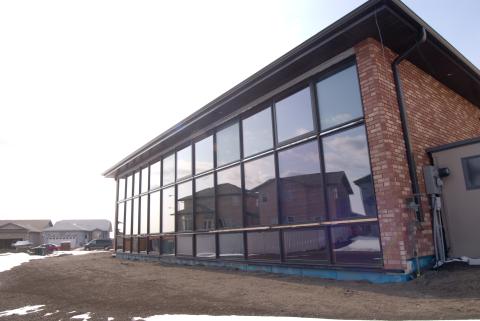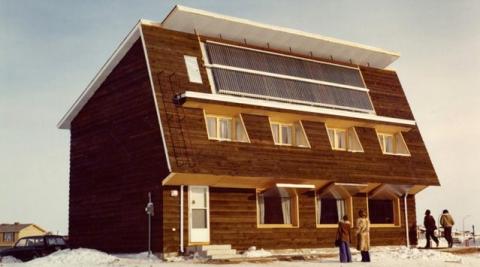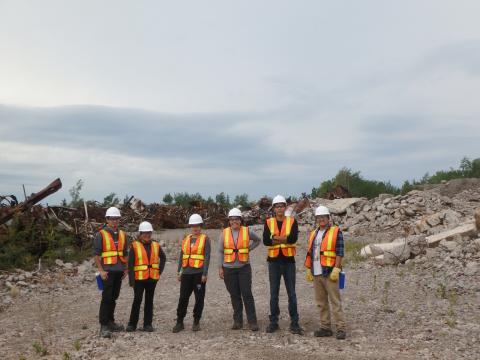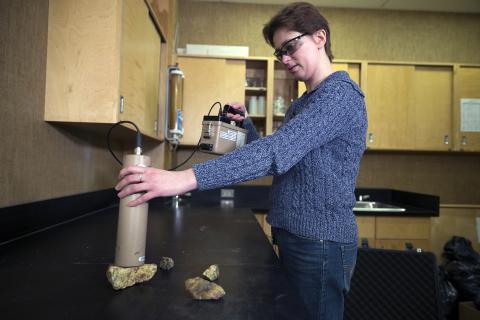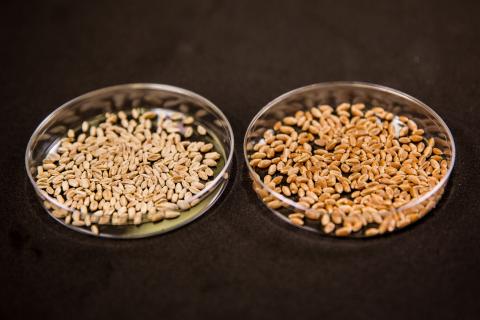Inside SRC
There are many potential impacts that climate change may have on Canada’s boreal forest. Industry and government will need to prepare for a different forest environment, and develop adaptation strategies for dealing with the new conditions.
The Saskatchewan Conservation House was a demonstration house built to test energy-efficient methods. Four more energy-efficient demonstration homes based on SRC’s research and expertise were later constructed. Learn about the innovative features of these homes that influenced energy-efficient housing across the world.
Innovative technologies and advancements are happening every day - how do we keep up? SRC's Business Intelligence team monitors megatrends, systems and technologies. Learn how these three levels interact and influence each other and industry.
As a result of the energy crisis in the 1970s, Saskatchewan residents were looking for ways to reduce energy costs for their homes. Learn about the development of an energy conservation demonstration home, the Saskatchewan Conservation House, which applied cost-effective methods for reducing energy use for homeowners.
Giving students the opportunity to try a hands-on experience in science is something we never shy away from. We love science. So, when we heard that youth in northern Saskatchewan were looking for opportunities to gain experience in science-related fields, we took on the challenge.
With all of the different products and choices available to us, how can we, as consumers, make “green” choices based on reliable information? One valuable way to lower our impacts on the environment is to think about the full life cycle impacts of decisions about the products and services we consume.
Although the two things might appear to be unrelated, being a research technologist and a competitive curler has some similarities: both require precision, problem solving and a supportive team. Learn how a professional curler takes the skills he learns on the ice into the lab (and vice versa).
Making predictions about the future is difficult but, if the past is any indicator, some future technological innovations will arise out of things that have already been imagined by science-fiction and fantasy-fiction writers.
We’re fortunate that many women in STEM careers have chosen to work here – scientists, engineers, researchers, technologists. Learn how five women at SRC came to be in a STEM career and what and who inspired them - and continues to inspire them - to stick with it.
The prevalence and impact of Fusarium is spreading across the Canadian Prairie provinces, leading to concerns from industry around its potentially devastating impacts. Read more about a project to develop a test for wheat producers that will identify and quantify Fusarium species.
